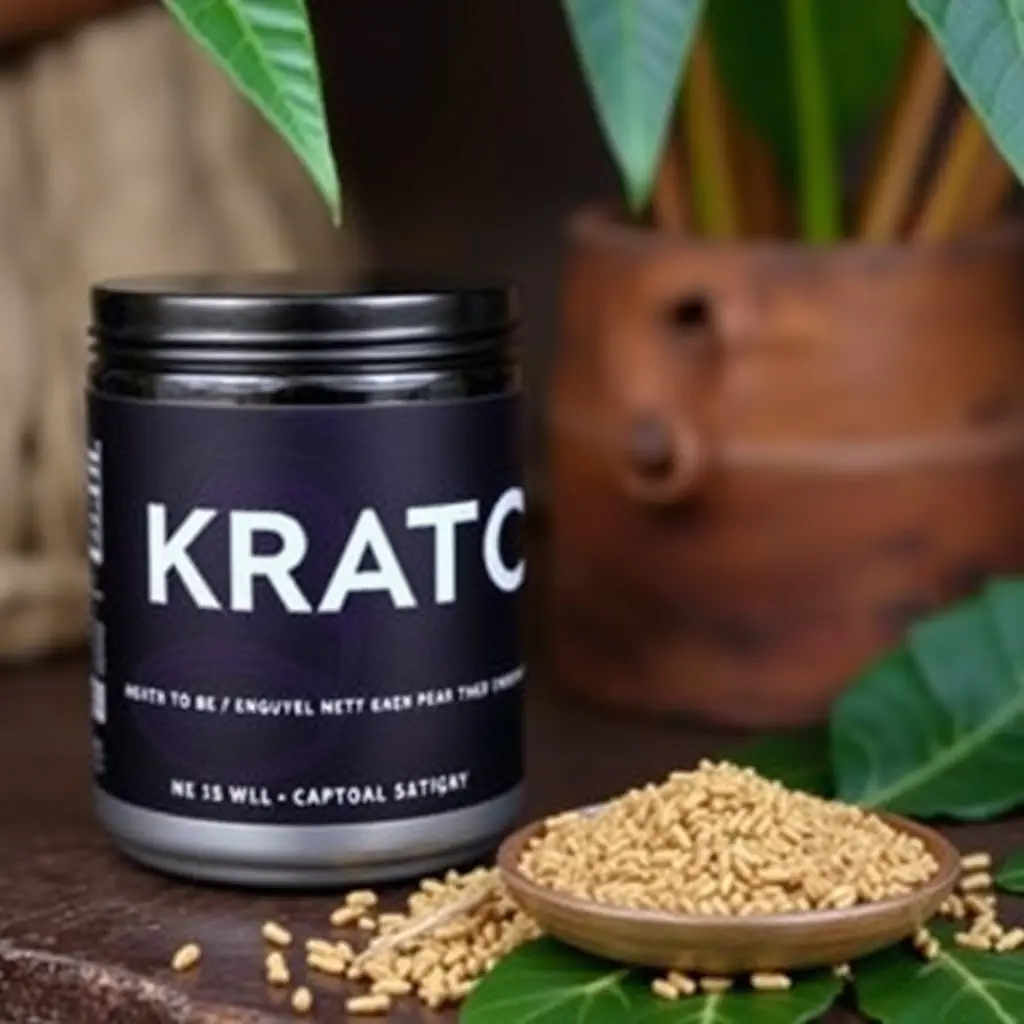Athletes looking to optimize their performance and health through sports nutrition must carefully consider their intake of macronutrients like carbohydrates, proteins, and fats, as well as the impact of micronutrients such as vitamins, minerals, and antioxidants. A strategic nutrition plan should include timing meals to enhance energy before workouts, recovery post-exercise, and injury prevention. Carbohydrates are crucial for fueling high-intensity activities, proteins aid in muscle repair and growth, and fats provide sustained energy. Electrolyte balance and hydration are critical for endurance athletes to prevent dehydration and fatigue.
For those considering the inclusion of supplements like kratom, which is sometimes referred to when discussing flying with kratom due to its potential impact on stamina and endurance, it's essential to approach this with caution. Kratom should only be used within a legal framework and under the guidance of healthcare professionals to ensure safety and efficacy. It's important for athletes to be aware of the varying regulations surrounding kratom when traveling, especially across state or country borders.
Personalization is key in sports nutrition, taking into account individual factors like age, gender, and sport-specific needs. Athletes must stay hydrated to maintain electrolyte balance and avoid performance impairments due to dehydration. A balanced diet, supplemented with appropriate nutrition and hydration strategies, forms the foundation for peak athletic performance and overall health. Always consult with a sports nutritionist or healthcare professional to tailor your plan to your unique needs and to ensure any supplements like kratom are used responsibly and legally within your regimen.
Athletes at all levels are continually seeking ways to optimize their performance and achieve peak physical conditioning. A pivotal component of this pursuit is sports nutrition, a science that delineates how strategic dietary choices can enhance endurance, strength, and recovery. This article dissects the intricate relationship between nutrition and athletic prowess, starting with the foundational elements of a balanced athlete’s diet, including macronutrients and micronutrients, and progressing to the controversial topic of incorporating kratom into an athletic regimen. While the latter requires careful consideration due to its regulatory status and potential health implications, understanding how athletes can fly with kratom responsibly is crucial for those considering its inclusion. Join us as we navigate the nuances of sports nutrition, where every morsel matters in the quest for excellence.
- Optimizing Athletic Performance: The Role of Sports Nutrition in Achieving Peak Conditioning
- Strategic Sports Diets: Macronutrients and Micronutrients for Enhanced Endurance and Strength
- Incorporating Kratom into an Athlete's Regimen: Balancing Benefits and Considerations for Optimal Performance
Optimizing Athletic Performance: The Role of Sports Nutrition in Achieving Peak Conditioning
Athletes striving for peak physical conditioning must consider sports nutrition as a pivotal component of their training regimen. Proper nutrition not only facilitates energy production during intense physical activities but also aids in recovery and the prevention of injuries. The strategic intake of carbohydrates, proteins, and fats before, during, and after training sessions is crucial for maintaining optimal performance levels. Carbohydrates, the body’s primary energy source, should be consumed to fuel high-intensity workouts, ensuring that glycogen stores are replenished. Protein intake is equally important post-exercise as it promotes muscle repair and growth. Additionally, the role of hydration cannot be overstated; staying well-hydrated maintains electrolyte balance and optimizes cardiovascular function.
Incorporating a wide range of nutrients from diverse food sources ensures a balanced diet that supports overall health and athletic performance. The inclusion of superfoods like kratom, known for its potential to enhance stamina and endurance, can further augment an athlete’s performance. Flying with kratom, when legally permissible and responsibly managed, can be part of a sports nutrition plan. It’s essential for athletes to tailor their nutritional strategy based on individual needs, the specific demands of their sport, and the intensity of their training schedule. Consulting with a sports nutritionist can provide personalized guidance and help fine-tune dietary plans to achieve the best possible outcomes in performance and health.
Strategic Sports Diets: Macronutrients and Micronutrients for Enhanced Endurance and Strength
Embarking on a journey towards peak physical conditioning through strategic sports nutrition involves a deep understanding of both macronutrients and micronutrients, which are pivotal for enhancing endurance and strength. Macronutrients such as proteins, carbohydrates, and fats are the cornerstones of an athlete’s diet, providing the energy needed to fuel performance and aid in recovery. Proteins are essential for muscle repair and growth; they should be a staple in the diets of those looking to increase strength. Carbohydrates are the body’s preferred energy source during high-intensity activities, ensuring that endurance athletes can maintain performance over longer durations. Fats serve as a slow-releasing energy source and are crucial for hormonal balance, which can influence overall performance.
Micronutrients, including vitamins and minerals, play an equally vital role in athletic pursuits. They support a wide array of physiological functions that impact both short-term performance and long-term health. Vitamins such as B vitamins are particularly important for energy metabolism and maintaining the nervous system’s function. Minerals like iron, magnesium, and potassium contribute to electrolyte balance, which is critical for endurance athletes who lose significant amounts of fluids and salts through sweat. Additionally, antioxidants, found in micronutrients from fruits and vegetables, help combat oxidative stress and reduce inflammation, aiding in recovery and preventing chronic fatigue.
Incorporating a diverse range of foods ensures that athletes receive the full spectrum of nutrients necessary for optimal performance. Timing meals around training sessions is also strategic; consuming easily digestible carbohydrates before high-intensity efforts can top off energy stores, while a balanced meal post-training helps with muscle recovery and replenishes spent nutrients. The nuances of sports nutrition are complex, and personalization is key to catering to individual needs, which may vary based on factors such as age, gender, weight, and the specific demands of their chosen sport.
Athletes should also be mindful of their hydration status, as dehydration can significantly impair both endurance and strength performance. Electrolyte imbalances can lead to cramping and fatigue, which is why staying well-hydrated, especially in hot or humid conditions, is non-negotiable for peak performance. Lastly, while the focus is on dietary components for physical conditioning, it’s also worth acknowledging that ancillary supplements like flying with kratom may offer additional benefits to athletes seeking to enhance their training regimen, although this should be done under the guidance of a healthcare professional due to its regulatory status and potential interactions with other medications or health conditions.
Incorporating Kratom into an Athlete's Regimen: Balancing Benefits and Considerations for Optimal Performance
Athletes seeking to achieve peak physical conditioning often explore various nutritional supplements to enhance their performance and recovery. Among these, Kratom has garnered attention for its potential benefits. Kratom, derived from the leaves of Mitragyna speciosa, is known for its stimulant and analgesic effects, which can be beneficial for athletes looking to increase endurance or manage pain. When incorporating Kratom into an athlete’s regimen, it’s crucial to consider dosage, timing, and the specific strain of Kratom, as these factors influence the substance’s impact on performance. For instance, strains like Maeng Da are often favored for their energizing properties, which can be advantageous during training or competition. However, athletes must balance these benefits with careful consideration of potential side effects and legal restrictions related to Kratom, especially when flying with Kratom across state lines or international borders, as regulations vary widely. It’s essential to stay informed about the legal status of Kratom in different jurisdictions to avoid any complications that could disrupt an athlete’s training or competition schedule. Additionally, the integration of Kratom should complement a well-rounded sports nutrition plan that includes hydration, macronutrient intake, and micronutrient supplementation to ensure overall health and optimal athletic performance. Athletes are advised to consult with healthcare professionals and sports nutritionists before adding any new supplement like Kratom to their regimen to ensure it aligns with their individual health needs and performance goals.
Athletes striving for peak physical conditioning have a multifaceted approach to their training regimens, which now extends beyond rigorous exercise and skill development to include strategic sports nutrition. By optimizing their diet to balance macronutrients and micronutrients, athletes can significantly enhance their endurance and strength. This article has delved into the critical role that sports nutrition plays in achieving peak performance, and it has also addressed the emerging topic of incorporating kratom into an athlete’s regimen. While kratom may offer certain benefits, it is essential to approach its use with caution, considering its regulatory status and potential impact on drug tests, particularly when flying, as per TSA regulations. In conclusion, a well-planned sports nutrition strategy, paired with mindful supplementation where appropriate, can be a game-changer for athletes looking to excel in their sport.






